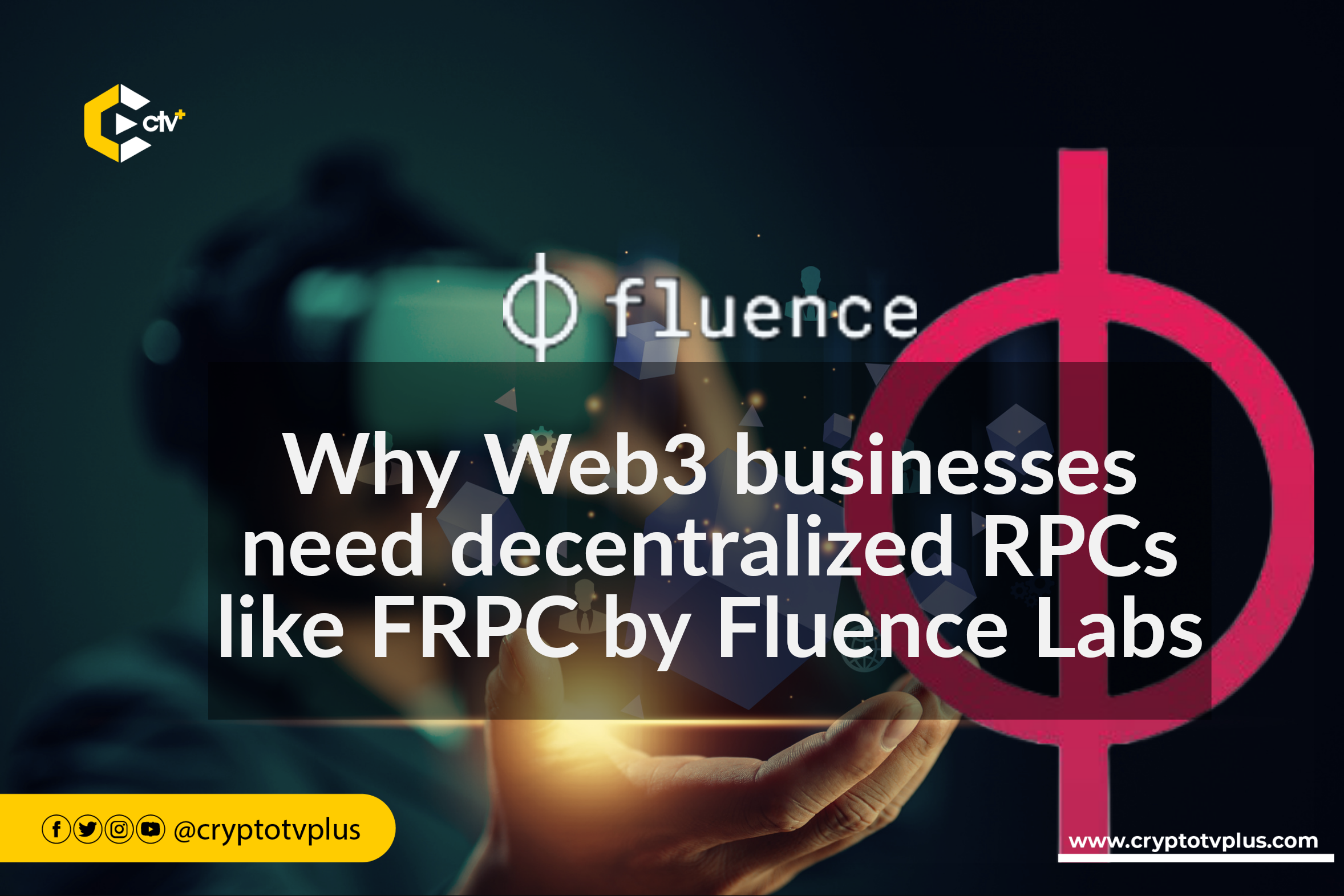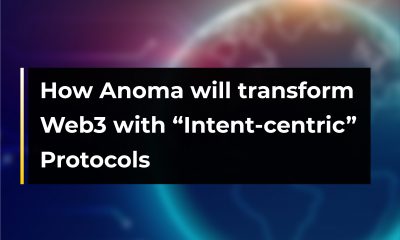FEATURED
Why Web3 Businesses Need Decentralized RPCs like FRPC by Fluence Labs

The digital landscape has witnessed a remarkable transformation with the advent of web3 technologies and decentralized applications (dApps).
Amid this revolution, enterprises have eagerly embraced blockchain-powered solutions, shaping a new paradigm for business operations.
However, as businesses integrate these innovations, concerns surrounding risk management and the use of RPCs have emerged as critical focal points.
A Remote Procedure Call (RPC) is a communication protocol used by one program to request a service from another program on a different computer within a network.
This communication enables the requesting program to utilize a service without needing to comprehend the intricacies of the underlying network infrastructure.
To address this issue, Fedor Kurbatov, a representative from Fluence Labs, spoke at the ETHCC Paris, on how decentralized Remote Procedure Calls (RPCs) can be effective in solving the problem.
Fedor began his presentation by clarifying the concept of dApps, which are essentially web applications that leverage blockchain technology at their core.
These applications rely on blockchain nodes and their associated RPCs to interact with the blockchain network.
Traditionally, businesses have accessed RPCs by either self-hosting full nodes—a complex and time-consuming endeavor—or employing centralized SaaS RPC providers like Infura, Alchemy, or QuickNode. While centralized SaaS RPCs offer convenience and cost-effectiveness, they introduce several inherent risks.
He, therefore, highlighted the concerns of centralization, which creates a single point of failure and dependence on third-party service providers, leading to potential service terminations.
Furthermore, the representative added that the regulatory landscape adds another layer of risk, especially in instances where apps are deemed to have centralized components.
Why Decentralized RPCs
To address these challenges, Fedor presented Fluence Labs‘ approach: the development of decentralized RPC solutions. One such solution is the Fluence Network’s FRPC – a decentralized alternative to centralized RPC providers.
This innovative framework allows dApp developers to shift from relying on centralized RPC endpoints to utilizing Fluence’s decentralized network, effectively reducing the risk of dependency on single providers.
Fedor highlighted two pathways to implement decentralized RPCs which are integrating Quorum and failover solutions within the app or using open permission platforms like Fluence.
While the former provides greater control, it can lead to increased complexity and coupling. The latter, using platforms like Fluence, offers a decoupled approach that maintains the benefits of decentralization without overburdening the dApp’s codebase.
Choosing Fluence
Explaining Fluence, Fedor said that it is a decentralized serverless computing platform with key features such as verifiability, trustlessness, censorship resistance, and fault tolerance.
He added that Fluence aims to replicate the cloud stack, providing a decentralized environment for running applications.
He noted that the design of Fluence allows developers to create libraries, costs, and backends for their dApps, all controlled by a decentralized autonomous organization (DAO).
In addition, he introduced the Fluence Labs solution (FRPC) saying that it is the decentralized equivalent of Infura, built using Fluence.
Serving as an illustrative example of Fluence’s capabilities, it facilitates the deployment of a straightforward, self-hosted RPC tied to a DApp’s configured RPC providers.
He noted that the solution supports Quorum, load balancing, and RPC methods, and is accessible on the Fluence testnet. By adopting this solution, you can replace centralized RPC endpoints with a self-hosted HTTP Gateway within your Web3 DApp frontend.
This user-friendly application, operational anywhere, leverages Fluence’s decentralized network to access both centralized and decentralized RPC endpoints, along with load balancing and Quorum execution.
Toward the end of his presentation, the engineer had the audience see a live demo that demonstrated how they could use the new tool, which promises to help enterprises navigate away from single points of failure, reduce dependence on third-party providers, and uphold the principles of decentralization.
Lastly, he revealed that Fluence currently supports Rust, with plans to include Python and JavaScript. With a Testnet in operation, a Mainnet is scheduled for Q4 this year. Also, Developer documentation can be found on influence.dev.
Read also; CarbonDeFi.xyz Introduces Asymmetric Liquidity: A Game-Changer for DeFi
























